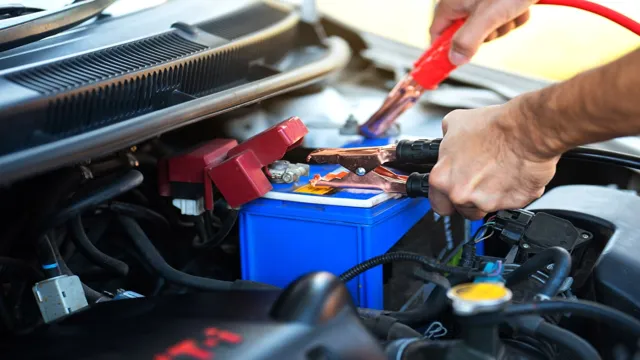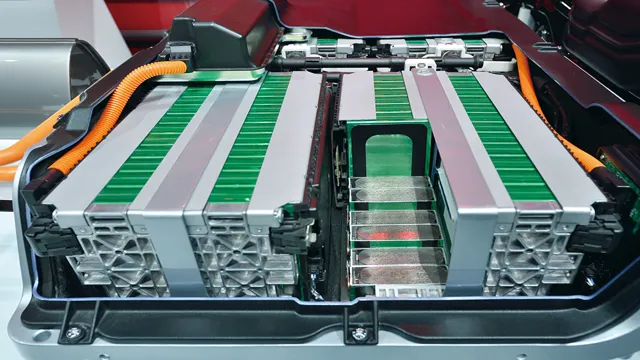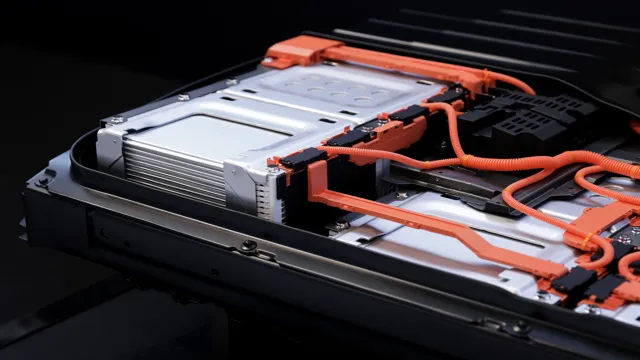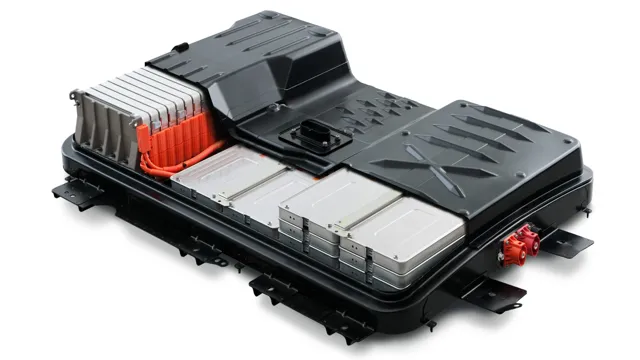Unpacking the Truth About Electric Car Battery Life: A Comprehensive Guide
As the world shifts towards sustainable energy, electric cars have become a popular choice for environmentally conscious drivers. However, one of the biggest concerns when it comes to owning an electric vehicle is the battery’s lifespan. Will it last long enough? And more importantly, how long can you expect an electric car battery to last? In this blog post, we will delve into the often confusing topic of electric car battery life, exploring the factors that impact battery longevity, and debunking common myths.
So, grab a cup of coffee, pull up a chair, and let’s get started on demystifying the lifespan of electric car batteries!
Current Average Range
When it comes to electric cars, one of the most important factors to consider is the battery life. With the increasing popularity of electric cars, the current average range is constantly changing. According to recent reports, the average range for electric cars is around 250 miles on a single charge.
Of course, this can vary based on the make and model of the car, as well as driving conditions and your driving habits. However, with more advanced technology being developed and implemented, it’s likely that we’ll see even longer ranges in the coming years. As we all become more conscious of our impact on the environment, electric cars continue to be a smart and sustainable choice.
With a longer battery life, they’ll become an even more convenient and viable option for drivers looking to make the switch to a more eco-friendly vehicle. So if you’re in the market for an electric car, keep an eye on the average range and make sure to choose the one that best meets your needs!
Data on Industry Standard Mileage
When it comes to the industry standard mileage, the current average range can vary depending on various factors. Generally, the average industry standard mileage for cars in the United States is around 12,000 to 15,000 miles per year. However, this can differ from one car manufacturer to another and from one type of vehicle to another.
For instance, small economy cars usually have higher average mileage compared to luxury and sports cars. Additionally, factors like driving habits, road conditions, and weather can also impact a car’s average mileage. As a car owner, it’s important to keep track of your car’s mileage to ensure your vehicle is performing optimally.
Remember to service your car regularly and check for any warning signs that may indicate potential problems. By doing so, you can extend the life of your vehicle and save money in the long run.
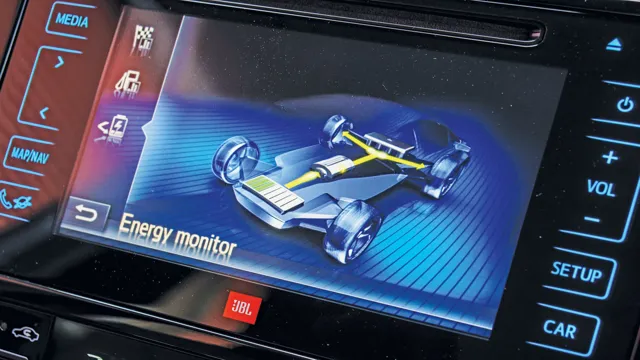
Factors Affecting Battery Life
When it comes to electric vehicles, one of the most important factors to consider is their battery life. The current average range for most EVs falls between 200-300 miles on a single charge, but this can vary greatly depending on several key factors. One of the biggest determinants of EV battery life is how the car is driven.
Frequent hard acceleration and high speeds can significantly reduce the range of an EV, whereas gentle driving can extend it. Another important factor is the temperature. Extremely hot or cold weather can greatly impact the performance of an EV battery, causing it to drain more quickly than usual.
Other factors, such as the age of the battery, the type of terrain being driven on, and the use of energy-intensive features like air conditioning or heating, can also affect battery life. Ultimately, it’s important to be aware of these factors so that you can make an informed decision when choosing an EV and maximize its battery range.
Tips to Maximize Battery Life
If you own an electric car, maximizing the battery life is essential for getting the most out of your vehicle. The first tip is to avoid high-speed driving and rapid acceleration, which can quickly deplete your battery. Instead, focus on driving efficiently and smoothly, as this can significantly extend your battery life.
Additionally, keep your car’s battery charged above 50%, as this is the range where your battery operates best. It’s also crucial to avoid extreme temperatures, as both high and low temperatures can impact your battery’s performance. Finally, make sure to regularly maintain your electric car, such as checking the tire pressure and keeping up with the recommended service schedule.
By following these tips, you can maximize the battery life of your electric car and ensure you get the most out of your driving experience.
Efficient Driving Habits
Efficient Driving Habits In order to maximize your electric vehicle’s battery life, there are a few driving habits that you can adopt to ensure efficiency. Firstly, try to avoid sudden accelerations and hard braking, as these actions can drain your battery faster than steady driving. It’s also important to maintain a consistent speed and avoid unnecessary stops.
Planning your route ahead of time and avoiding rush hour traffic can help with this. Another helpful tip is to use the regenerative braking system, which converts the energy from braking into electricity that can be used to recharge the battery. Additionally, it’s important to keep your tires properly inflated and reduce the amount of load in your car to improve overall efficiency.
By implementing these driving habits, you can maximize the range of your electric vehicle and get the most out of your battery.
Proper Battery Maintenance
Battery maintenance is a crucial aspect not only for the proper functioning of your device but also to maximize the battery life. Here are a few tips that can help you to extend the life of your battery. Firstly, do not overcharge your battery, and limit it to 80% when you can.
Secondly, avoid exposing your phone to extreme temperatures and store it in a cool, dry place. Thirdly, calibrate your battery once a month by letting it fully discharge and then fully charge it again. Fourthly, update your device’s software regularly, as software updates often provide battery optimizations.
Finally, avoid letting your battery drain completely, as it can cause permanent damage to your battery. By following these tips, you can maximize the life of your battery and avoid the need for frequent battery replacements. Remember, proper battery maintenance is just as important as any other aspect of device maintenance and can save you money in the long run.
Using Regenerative Braking
When it comes to electric vehicles, one of the best ways to maximize their battery life and range is by utilizing regenerative braking. This innovative technology helps to recharge the battery while the vehicle is in motion, by converting the kinetic energy created during braking back into electrical energy. To make the most of regenerative braking, it’s important to drive in a way that encourages the use of braking as much as possible.
This means anticipating stops and slowing down gradually, rather than slamming on the brakes at the last minute. It’s also helpful to use the vehicle’s “B” mode, which increases the regenerative braking effect. By using regenerative braking effectively, EV drivers can help to improve their battery life and range, while also saving money on charging costs and reducing their environmental impact.
So don’t hesitate to explore the full potential of your electric vehicle and take advantage of regenerative braking today!
Future of Electric Car Batteries
As the demand for electric vehicles continues to grow, so does the need for more efficient and longer-lasting battery technology. While the current average battery life of an electric car is around 100,000 miles, experts suggest that new advancements could soon extend that range by two to three times. One promising approach is the use of solid-state batteries, which replace traditional liquid electrolytes with a solid material.
These batteries offer higher energy density, faster charging times, and increased safety. Another development to watch is the use of AI and machine learning to optimize battery performance and extend its lifespan. As the race to create cleaner and more sustainable transportation heats up, the battery life of electric cars will undoubtedly play a critical role in shaping the future of the industry.
Advancements in Battery Technology
Advancements in battery technology have paved the way for more efficient and reliable electric cars. The future of electric car batteries looks promising as battery companies continue to explore new ways to improve performance and reduce costs. One of the most exciting advancements is solid-state batteries, which are safer, more energy dense, and have longer lifespans than traditional lithium-ion batteries.
Additionally, companies are experimenting with new materials, such as silicon, to increase battery capacity and improve energy transfer. These advancements not only benefit the electric car market but also have implications for renewable energy storage, as battery technology becomes more efficient and cost-effective. With continued innovations in battery technology, the future of electric cars looks bright, and we can look forward to more widespread adoption of emissions-free transportation.
Increased Government Funding
One of the biggest challenges facing the electric car industry is the development of more efficient and affordable batteries. Fortunately, increased government funding is paving the way for groundbreaking research into the future of electric car batteries. With more resources and support, scientists and engineers are exploring new materials, designs, and manufacturing processes that could drastically improve battery performance and reduce costs.
For example, some researchers are experimenting with solid-state batteries, which use a solid electrolyte instead of a liquid one to improve energy density and safety. Others are developing lithium-sulfur batteries, which could offer even greater energy density and lower costs than current lithium-ion batteries. As these efforts continue, the electric car industry could see a significant boost in consumer demand and mainstream acceptance.
The future of electric car batteries is bright, and with the support of government funding and private investment, we could see a revolution in transportation that benefits both our planet and our economy.
Conclusion: Is an Electric Car Right For You?
In conclusion, the battery life of an electric car is no longer a roadblock for those considering making the switch to sustainable transportation. Thanks to advancements in technology, electric car batteries now have longer lifespans and faster charging capabilities than ever before. While range anxiety may have been a concern in the past, the growing network of charging stations and increased availability of high-capacity batteries means drivers can confidently hit the open road.
So, if you’re looking for a ride that packs a punch but also packs in the sustainability, an electric car with impressive battery life is the way to go!”
FAQs
How long does the battery of an electric car last?
The battery life of an electric car depends on various factors such as driving habits, temperature, and maintenance. Generally, it can last up to 8-10 years or 100,000 miles.
How much does it cost to replace the battery of an electric car?
The cost of replacing the battery of an electric car varies depending on the make and model of the car. On average, it can cost between $5,000 to $10,000.
Can the battery of an electric car be recycled?
Yes, the battery of an electric car can be recycled. The components like cobalt, nickel, and lithium can be reused, reducing the environmental impact.
How does the battery life of an electric car compare to a gas-powered car?
The battery life of an electric car is longer compared to a gas-powered car. It can last up to 8-10 years or 100,000 miles, while a gas-powered car’s battery can last up to 3-5 years. However, the range and charging time of an electric car are still a concern for some drivers.


